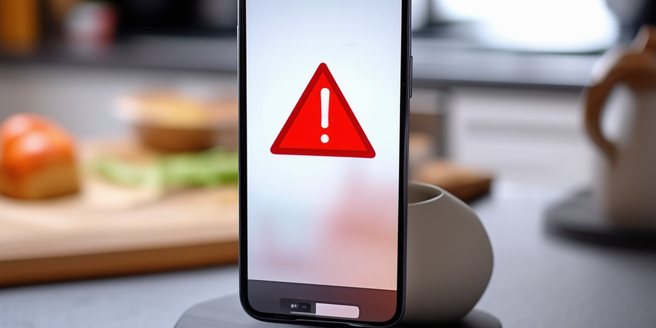Avoiding Sweepstakes Scams

Understanding Sweepstakes Scams
| Characteristic | Description | Example |
| Unexpected Contact | Scammers often contact victims unsolicited | Email or phone call |
| Too Good to Be True | Promises of large rewards with little effort | Instant winning notification |
| Payment Requests | Asked to pay fees or taxes for prize release | Wire transfer or prepaid card payment |
| Pressure Tactics | Urgent demands or short deadlines | Act now promotions |
| Personal Information | Request for sensitive data under false pretenses | SSN, bank details request |
| No Entry Evidence | No recollection of participation | Winning an unknown contest |
Common Red Flags to Watch Out For
There are several red flags to watch out for when it comes to sweepstakes scams. Firstly, be wary of unsolicited communications claiming you’ve won a prize, especially if you don’t remember entering a contest. Scammers often use promises of enormous rewards to lure victims in. Another major red flag is the request for personal information or upfront fees under the guise of taxes or processing fees. Legitimate sweepstakes do not ask winners to pay fees to claim their prize. Additionally, pressure tactics and urgent deadlines are commonly used by scammers to force quick decisions without ample time for verification. Always take the time to scrutinize and verify the legitimacy of any sweepstake notifications you receive.
Verifying Sweepstakes Legitimacy
To verify the legitimacy of a sweepstakes, look for official rules and contact details of the sponsoring company. Legitimate sweepstakes will be transparent about their terms and conditions, including how and when winners are notified and the process of claiming the prize. A legitimate company will also have a traceable history and customer service contacts. Be sure to read reviews and testimonials from previous participants as well. Cross-reference the contact information on the official website of the company. Be cautious if you are asked for personal details or payment in advance. Verifiable sweepstakes will never require fees to claim a prize. If in doubt, seek verification from official sources or consult online communities and consumer protection websites.
Steps to Protect Personal Information
Protecting your personal information is crucial when dealing with sweepstakes. Ensure you do not share sensitive data such as your Social Security Number, bank account details, or passwords with unknown entities. Always use secure and unique passwords for different online accounts to mitigate risks. Be cautious of links or attachments in unsolicited emails or messages, as these could be phishing attempts. Scammers often use these tactics to gain access to your personal information. Use trusted antivirus software to safeguard your devices against malicious attacks. Additionally, consider signing up for identity theft protection services to monitor suspicious activities involving your personal data. If you encounter a potential scam, report it promptly to help protect others.
Reporting Sweepstakes Scams
If you suspect you’ve encountered a sweepstakes scam, it is important to report it immediately to relevant authorities. In the United States, you can report such scams to the Federal Trade Commission (FTC) and the Internet Crime Complaint Center (IC3). Local law enforcement agencies also handle reports of fraud and can provide guidance on protective measures. Furthermore, discussing the situation with trusted friends or family members can provide additional support. Additionally, report the scam to the Better Business Bureau (BBB) to help warn others. Document all interactions with the scammer, including emails, phone numbers, and any payment receipts, as these can provide useful information to investigators. Taking these steps helps prevent future scams and protects other consumers.
Case Studies of Common Scams
Examine case studies of common sweepstakes scams to understand how they operate. A classic case involves victims receiving calls claiming they’ve won a large sum of money, but need to pay taxes or fees upfront. Often, the scammer pretends to be from a well-known organization to add credibility. Scammers constantly innovate new tactics to deceive unsuspecting individuals. In another case, victims receive emails with official-looking logos asking them to verify personal information to claim their prize. A reported scam involved victims being sent fake checks, which bounce after banking, leaving them with bank fees and no prize. Studying these real-life examples equips individuals with the knowledge to identify and avoid such scams.
Expert Tips on Staying Safe
Experts recommend several tips to stay safe from sweepstakes scams. Firstly, if an offer sounds too good to be true, it probably is. Always verify the legitimacy of the sweepstake through official channels. Be wary of providing personal information, especially if asked abruptly or under pressure. Legitimate sweepstakes do not require payments or sensitive data to claim prizes. Utilize caller ID and block unidentified numbers to avoid unsolicited calls. Moreover, sharing such suspicious incidents with friends and family can also help spread awareness. Regularly check your accounts for unauthorized transactions. Employ strong cybersecurity practices, including updated antivirus software, to safeguard against malware and phishing attempts. Staying informed and vigilant is key to avoiding scams.
Tools and Resources for Consumers
There are numerous tools and resources available to help consumers identify and protect against sweepstakes scams. Various government and non-profit websites, such as the Federal Trade Commission (FTC) and the Better Business Bureau (BBB), offer valuable information on recognizing and reporting scams. Additionally, many financial institutions provide fraud protection services and alerts for unusual activities. Identity theft protection services can monitor and alert you to any misuse of your personal information. Regularly updating your passwords and security settings is another simple yet effective measure to protect yourself. Online forums and communities, like those on Reddit, offer peer discussions and real-time advice on dealing with scams. Educating yourself with these resources can greatly enhance your security.
Recognizing Phishing Attempts
Recognizing phishing attempts is vital in protecting against sweepstakes scams. Phishing attacks typically involve fraudulent emails or messages that appear to be from legitimate sources, urging you to click on a link or download an attachment. These messages often use scare tactics or present lucrative prizes to catch your attention. Be cautious of any email that asks for sensitive information or immediate action. Look for signs such as mismatched email addresses, spelling, and grammatical errors, or impersonal greetings. Before clicking on any links, hover to see the URL and ensure it matches the legitimate site. Use email filtering tools to flag suspicious messages and report them to your email service provider to help protect others.
Legal Actions Against Scammers
Legal actions against scammers play a crucial role in combating sweepstakes fraud. Regulatory bodies, such as the Federal Trade Commission (FTC) and the Department of Justice (DOJ), actively pursue and prosecute scammers involved in fraudulent activities. Successful legal actions not only penalize the perpetrators but also serve as a deterrent to others. To truly make an impact, public awareness campaigns should be initiated to educate people about the risks and signs of scams. Victims of scams are encouraged to cooperate with law enforcement during investigations, providing evidence and testimony that can strengthen the case. International cooperation is also vital, as many scam operations are cross-border. Vigilant reporting and strong legal frameworks are essential in the ongoing battle against sweepstakes scams.
